The Institut de Recherche en Didactiques et Éducation de l'Université de Namur (IRDENa) is made up of researchers from various faculties and departments at the University of Namur. These transversal relationships offer a multidisciplinary approach and aim to amplify synergies between researchers in the world of education and didactics.
Their mission is to foster the emergence of new research objects and methodologies, stemming from a variety of disciplinary anchors.
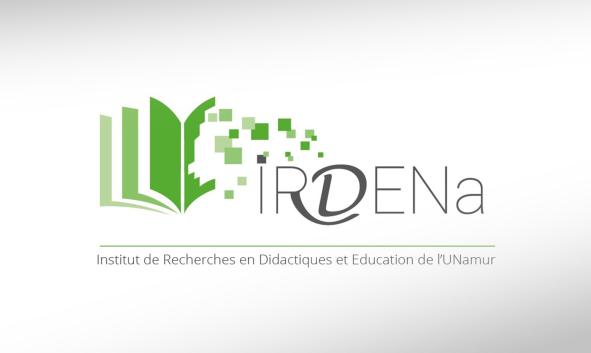
Plateforme associée | SHS Impulse
La plateforme méthodologique pour les sciences humaines et sociales SHS Impulse propose un soutien adapté aux besoins des chercheurs et renforcer l’excellence en SHS à l’UNamur.
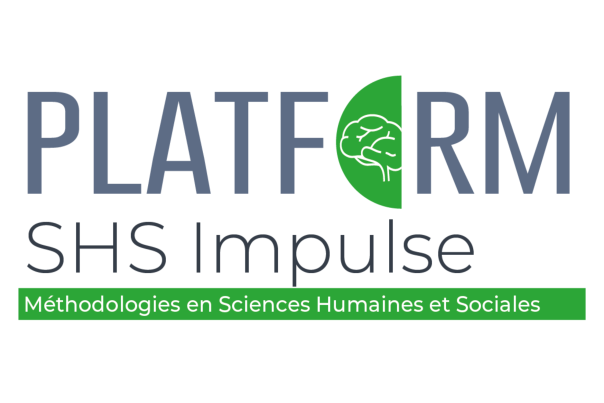
Spotlight
News
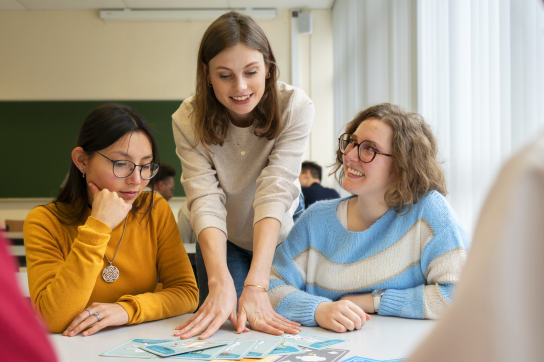
Training reflective, autonomous, and supportive teachers
Training reflective, autonomous, and supportive teachers
Since September 2023, the reform of initial teacher training (RFIE) has been profoundly transforming the teaching profession. This year, it is taking a new step forward with the replacement of the former teaching-oriented master's degrees and the agrégation by master's degrees in teaching sections 4 and 5. Led by the Faculty of Education and Training Sciences (FaSEF), in collaboration with the Faculties of Science and EMCP (Economics, Management, Communication, and Political Science), the reform is accompanied by a strengthened partnership with HENALLUX (Namur-Liège-Luxembourg University College).
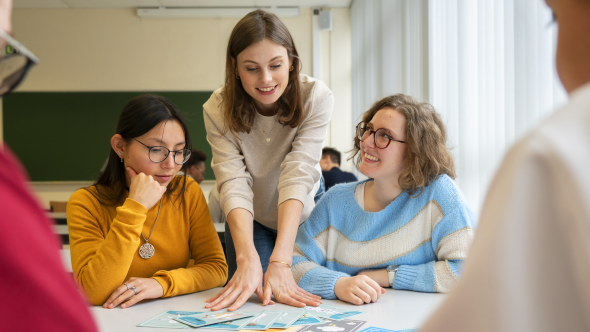
The RFIE has its roots in a worrying observation: our education system is struggling to fulfill its missions of efficiency and equity. PISA (Programme for International Student Assessment) surveys reveal skill levels below the average for industrialized countries and a chronic inability to compensate for social inequalities. In a European context where education is seen as a lever for the development of "human capital," the Wallonia-Brussels Federation wanted to take action. Inspired by the Lisbon objectives (2009), the reform aims to enhance the status of the teaching profession, strengthen professionalization, and better prepare future teachers for the diversity of school populations. It aims to profoundly transform the culture of training in order to improve the success of all students.
Training reflective and autonomous practitioners
Teacher training is now organized around the ages and needs of students, the skills to be acquired as part of the evolution of the profession, and the Pact for Excellence in Education.
Each program is built around six areas: subject-specific training, communication, training through practice, teaching and pedagogy, humanities and social sciences, and research in education and teaching.
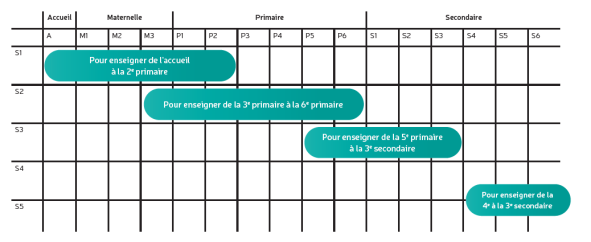
Students therefore learn to combine knowledge, practice, and research to become reflective teachers who are able to evaluate their actions, adjust their methods, and collaborate with their peers.
Diversity and differentiation at the heart of training
One of the pillars of the reform concerns taking student diversity into account. "Not everyone learns in the same way or at the same pace," points out Sandrine Biémar, vice dean of FaSEF. "We want our teachers to be able to diversify their practices without falling into extreme individualization. "
Courses in the psychology of learning, the sociology of education, and differentiated instruction allow us to approach diversity as a source of richness. "Understanding that you yourself have a particular cognitive style," adds Sephora Boucenna, "is already a way of embracing diversity. This leads to offering a variety of learning paths, rather than judging the student as incapable."
For students, this change translates into more appropriate teaching methods and a better understanding of their needs with a view to reducing inequalities. The goal is clear: to avoid repeating a year as a response to difficulties, to train competent citizens, and to contribute to a school system that regains its role as a social ladder.
Internships redesigned to anchor the profession
Another major change is that students now benefit from longer internships that are better supervised and integrated into their training program. "Taking on an intern isn't just about opening up your classroom, observing them, and evaluating them; it's also about being able to support them," emphasizes Sandrine Biémar. That's why UNamur offers a specific certificate for internship supervisors.
This support facilitates the transition to employment. Surveys show that between 30 and 40% of young teachers leave the profession within the first five years. "By strengthening training in and through practice, we want to consolidate their entry into the profession and prevent them from dropping out," she adds.
Stronger collaboration
Ensuring continuity between the different levels of education is also a key objective of this reform. "Thanks to the new five-section structure (see illustration)," explains Sandrine Biémar, "a kindergarten teacher has a better understanding of what is at stake in the early years of primary school, and a secondary school teacher can see how learning is built up from the ground up. This consistency helps to avoid disruptions and strengthen continuity in the students' educational journey."
To this end, UNamur is collaborating with HENALLUX within a consortium. "Universities and colleges used to work in parallel," recalls Sandrine Biémar. "Now we are working together to develop curricula and teaching methods. Although UNamur has a long tradition of training teachers for upper secondary school, it is now involved in training teachers from kindergarten to 6th grade."
A coherent educational network
These collaborations extend to continuing education thanks to the Salle des Pros, a UNamur structure that brings together continuing education centers for teachers.
"Through this reform, we are creating a coherent and sustainable network of educational stakeholders," summarizes Sephora Boucenna. "By linking initial training, research, and continuing education, we are laying the foundations for a strong, reflective, and supportive teaching profession."
This article is taken from the "Impact" section of Omalius magazine #39 (December 2025).
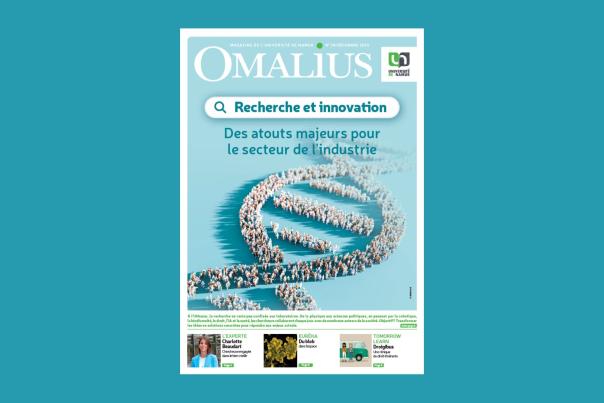
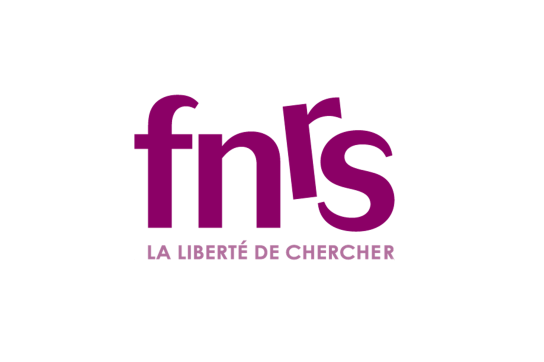
28 new research projects funded by the FNRS
28 new research projects funded by the FNRS
The F.R.S.-FNRS has just published the results of its various 2025 calls for proposals. These include the "Credits & Projects" and "WelCHANGE" calls, as well as the "FRIA" (Fund for Research Training in Industry and Agriculture) and "FRESH" (Fund for Research in the Humanities) calls, which aim to support doctoral theses. What are the results for UNamur? Twenty-eight projects have been selected, demonstrating the quality and richness of research at UNamur.
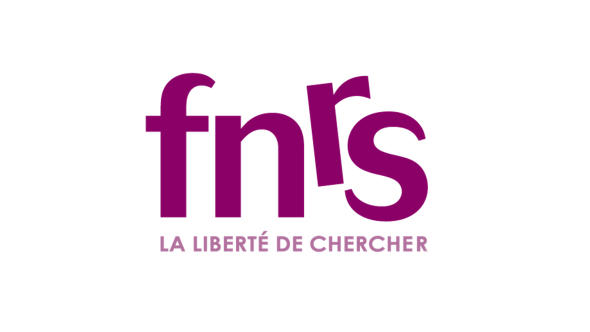
The "Credits & Projects" call for proposals resulted in 12 grants being awarded for ambitious new projects. These include two "equipment" grants, eight "research credits (CDR)" grants, and two "research projects (PDR)" grants, one of which is in collaboration with the ULB. The FRIA call for doctoral research support will fund eleven doctoral scholarships and the FRESH call will fund three.
Two prestigious Scientific Impulse Mandates (MIS) were also obtained. This three-year funding supports young permanent researchers who wish to develop an original and innovative research program by acquiring scientific autonomy within their department.
We would also like to highlight the two projects funded under the "WelCHANGE" call, a funding instrument for research projects with potential societal impact, led by a principal investigator in the humanities and social sciences.
Detailed results
Call for Equipment
- Xavier De Bolle, Narilis Institute, Co-promoter in collaboration with UCLouvain
- Luca Fusaro, NISM Institute
Call for Research Grants (CDR)
- Marc Hennequart, NARILIS Institute
- Nicolas Gillet, NARILIS Institute
- Jean-Yves Matroule, NARILIS Institute
- Patricia Renard, NARILIS Institute
- Francesco Renzi, NARILIS Institute
- Stéphane Vincent, NISM Institute
- Laurence Meurant, NaLTT Institute
- Emma-Louise Silva, NaLTT Institute
Call for Research Projects (PDR)
- Jérémy Dodeigne, Transitions Institute, Co-supervisor in collaboration with ULB
- Luc Henrard, NISM Institute; Co-supervisor: Yoann Olivier, NISM Institute
Fund for Training in Research in Industry and Agriculture (FRIA)
- Emma Bongiovanni - Supervisor: Catherine Michaux, NISM Institute
- Simon Chabot - Supervisor: Carine Michiels, Narilis Institute; Co-supervisor: Anne-Catherine Heuskin, Narilis Institute
- Lee Denis - Supervisor: Muriel Lepère, ILEE Institute
- Maé Desclez - Supervisor: Johan Yans, ILEE Institute; Co-supervisor: Hamed Pourkhorsandi (University of Toulouse)
- Pierre Lombard - Supervisor: Benoît Muylkens, Narilis Institute; Co-supervisor: Damien Coupeau, Narilis Institute
- Amandine Pecquet - Supervisor: Nicolas Gillet, Narilis Institute; Co-supervisor: Damien Coupeau, Narilis Institute
- Kilian Petit - Supervisor: Henri-François Renard, Narilis Institute; Co-supervisor: Xavier De Bolle, Narilis Institute
- Simon Rouxhet - Supervisor: Catherine Michaux, NISM Institute; Co-supervisor: Nicolas Gillet, Narilis Institute
- William Soulié - Supervisor: Yoann Olivier, NISM Institute
- Elisabeth Wanlin - Supervisor: Xavier De Bolle, Narilis Institute
- Laura Willam - Supervisor: Frédérik De Laender, ILEE Institute
Fund for Research in the Humanities (FRESH)
- Louis Droussin - Supervisor: Arthur Borriello, Transitions Institute; Co-supervisor: Vincent Jacquet, Transitions Institute
- Nicolas Larrea Avila - Supervisor: Guilhem Cassan, DeFIPP Institute
- Victor Sluyters – Supervisor: Wafa Hammedi, NADI Institute
- Amandine Leboutte - Co-supervisor: Erika Wauthia (UMons); Co-supervisor: Cédric Vanhoolandt, IRDENa Institute.
Scientific Impulse Mandate (MIS)
- Charlotte Beaudart, Narilis Institute
- Eli Thoré ILEE Institute
WelCHANGE Call
- Nathalie Burnay Transitions Institute, in collaboration with UCLouvain
- Catherine Guirkinger, DeFIPP Institute
Congratulations to all!

University and democracy: a living, sometimes threatened, link
University and democracy: a living, sometimes threatened, link
Trust of traditional political institutions and elected representatives, rise of authoritarian logics, definition of public services... Democracy today seems to be going through a turbulent zone. What role does the university play in this context? To shed light on this question, we interviewed four researchers from different disciplines: educationalist Sephora Boucenna, philosopher Louis Carré, political scientist Vincent Jacquet and legal scholar Aline Nardi. Their contrasting views sketch out the contours of an issue that is more topical than ever: thinking about and defending the link between university and democracy.

Democracy is by no means a fixed concept. It is the subject of debate, especially today. Louis Carré, Director of the Department of Philosophy and member of the Espace philosophique de Namur (Institut ESPHIN), proposes a three-dimensional definition: a political regime, a state of law and a way of forming society.
.The concept of democracy: between people power and centralization
"Etymologically, democracy is a political regime that consists in giving power to the people," he reminds us. "Our Western democracies today are based on the idea that the people are sovereign, without governing directly. From this arises a tension between ideal democracy and real democracy."Vincent Jacquet, professor in the Department of Social, Political and Communication Sciences and president of the Transitions Institute supports the point: "Democracy is an ideal of citizen self-government, but it is in tension with more centralizing, authoritarian logics. [...] Our political systems are crisscrossed by these different tensions, with both authoritarian logics increasingly present, including in our own country, and logics of participation that are sometimes accompanied by a great deal of hope and disappointment too."
The second pillar according to Louis Carré: the rule of law. Democracy guarantees the fundamental rights of all citizens through the constitution. But here again, beware of paradoxes: "One could indeed imagine laws passed by a majority of representatives or by a referendum, but which contravene fundamental rights" the philosopher stresses. Democracy cannot therefore be summed up by the majority principle alone.
Finally, democracy is also a way of forming society. It is based on real pluralism: diversity of opinions, beliefs and values. "This presupposes the existence of a relatively autonomous public space in the face of the power in place, which at times challenges the decisions taken by the governments that have been elected,"insists Louis Carré.
As such, citizens' distrust of politics is not necessarily a symptom of democratic crisis. It may even be a sign of its vitality, as Vincent Jacquet explains:"The fact that citizens are critical of their government is not necessarily negative because, in a democracy, citizens must be able to control the actions of those in power."

Training the governors... and the governed
In this context, what is the university's responsibility? Louis Carré begins by reminding us of a simple fact: a large proportion of our elected representatives have passed through university benches. But its teaching mission doesn't stop there. "It's about training enlightened citizens, not just rulers. Universities must offer quality higher education, open to as many people as possible", he asserts.
"Democracy does indeed presuppose citizens capable of debating, reflecting, problematizing issues", adds Sephora Boucenna, Dean of the Faculty of Education and Training Sciences and member of UNamur's Institut de Recherches en Didactiques et Éducation (IRDENA). It's all about training reflective minds, capable of questioning their times.
Training reflective teachers for critical citizens
Universities also train those who, tomorrow, will educate future generations: teachers. And here again, democracy is at stake.
"Our mission is to train reflective teachers who, in turn, will teach their students to think critically"insists Sephora Boucenna. This requires in-depth work on analyzing practices, collective construction and learning to debate, from initial teacher training through to in-service training.

Producing and disseminating knowledge... in complete independence
In addition to teaching, universities also have a research and social service mission. It produces knowledge that can enlighten public policy, but also question it. This critical function presupposes real independence from politics. "To analyze democratic mechanisms with lucidity, including those that governments put in place, the university must retain its freedom of research and speech," insists Vincent Jacquet.
Louis Carré goes further: "Like the press, the university is a form of counter-power in the public space". He also points out that "there is a confusion between freedom of opinion and academic freedom. Academic knowledge goes through a series of verification, experimentation and discussion procedures within the scientific community. This gives it a robustness that is not that of an opinion, a value, a belief."

This critical function of the university presupposes strong independence. In Belgium, however, university funding is largely a matter for the political authorities. "Celane must not mean being placed under tutelage", warns Louis Carré. "Conducting critical research that doesn't satisfy short-term sponsors requires independence, including in terms of resources. We need a large number of researchers who can analyze different types of dynamics. The more we cut research funding, as is the case today, the fewer researchers we'll have and therefore the less capacity for independent analysis and diversity of perspectives, insists Vincent Jacquet.
The "Université en colère" movement, recently launched within the universities of the Wallonia-Brussels Federation, intends to denounce the effects of definancement. Its representatives are calling for "guarantee the conditions for the development of an open, independent, quality university accessible to the greatest number. Faced with the social, economic and political challenges of our time, and because other choices for society, and therefore budgets, are possible, it is more essential than ever to strengthen the institutions and players at the heart of knowledge production."
Between vigilance and commitment: a link to be reinvented
Democracy is therefore not limited to elections or institutions. It is based on collective vigilance, carried by citizens, knowledge... and the places where this knowledge is built. In this respect, universities are an essential link in the chain of democratic vitality. Provided it remains independent, accessible and open to society.
"Democracy is not just a matter of institutions. It's about citizens who bring it to life and organize themselves to assert their perspectives at different times", insists Vincent Jacquet. A clear invitation not to remain a spectator, but to participate, with lucidity and exigency, in the construction of a common democratic future.
On the same subject
- Artificial intelligence, a danger for democracy?
An academic year focused on democracy
Find the speech given by Rectrice Annick Castiaux at the 2025-2026 Academic Back-to-School Ceremony.

Cet article est tiré de la rubrique "Le jour où" du magazine Omalius #38 (Septembre 2025).

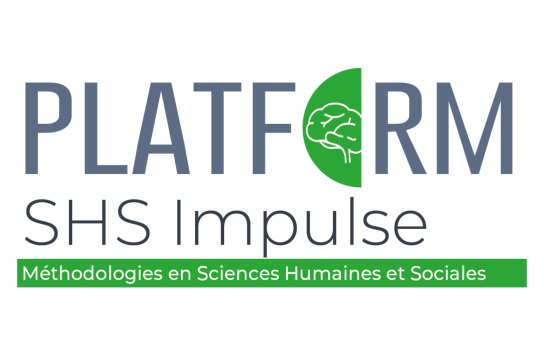
New impetus for the humanities and social sciences at UNamur
New impetus for the humanities and social sciences at UNamur
A new platform dedicated to research in the humanities and social sciences (SHS) is being launched at UNamur. The aim? To offer SHS researchers methodological support tailored to their needs and strengthen SHS excellence at UNamur. This platform, SHS Impulse, will provide various services such as financial support for training, consultancy, access to resources, or co-financed software purchases.
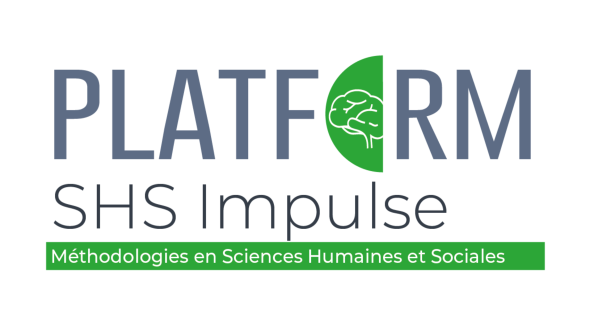
Whether it concerns linguistics, economics, politics, sustainable development, law, history, educational sciences, literature or translation, research in the humanities and social sciences is as eclectic as it is rich and essential for tackling society's challenges. Of UNamur's eleven research institutes, seven are directly involved in SHS research. While there is a high degree of complementarity in these areas of research, better pooling of resources, sharing and easier access to certain services, resources and support will help to sustain and strengthen the excellence of SHS research at UNamur. It is with this in mind that the SHS impulse platform has just been created.
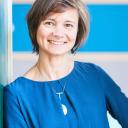
We started from the needs of SHS researchers to establish four axes developed within this platform
.
Resources organized around 4 axes
- Axis 1 - Support for the acquisition of databases, documentary resources and software
- Axis 2 - Subsidy for cutting-edge training in the use of specialized methods
- Axis 3 - Funding access to the SMCS "Support en Méthodologie et Calcul Statistique" platform at UCLouvain, thanks to an inter-university partnership.
- Axis 4 - Setting up an SHS space, containing a laboratory for running experiments and shared work tools promoting exchanges between researchers.
Outlook
This initiative, launched in January 2025, addresses the specific challenges faced by SHS researchers. The long-term aim is to sustain and expand the services. "We will also hire a researcher expert in methodological analysis in SHS who will be able to inform innovative methodologies and frame the methodological design of research projects," emphasizes Sandrine Biémar, vice-dean of UNamur's Faculty of Education and Training Sciences, a member of the IRDENA institute and the SHS Impulse management committee. "The wish is also to support networking between SHS researchers at UNamur and to be a lever for setting up interdisciplinary projects," adds Sandrine Biémar.
The platform's management team is made up of representatives of the university's various SHS institutes, and ensures efficient management of resources. The platform's impact will be assessed during its initial phase (2025-2027), enabling strategies for its sustainability and development to be defined.

Training reflective, autonomous, and supportive teachers
Training reflective, autonomous, and supportive teachers
Since September 2023, the reform of initial teacher training (RFIE) has been profoundly transforming the teaching profession. This year, it is taking a new step forward with the replacement of the former teaching-oriented master's degrees and the agrégation by master's degrees in teaching sections 4 and 5. Led by the Faculty of Education and Training Sciences (FaSEF), in collaboration with the Faculties of Science and EMCP (Economics, Management, Communication, and Political Science), the reform is accompanied by a strengthened partnership with HENALLUX (Namur-Liège-Luxembourg University College).

The RFIE has its roots in a worrying observation: our education system is struggling to fulfill its missions of efficiency and equity. PISA (Programme for International Student Assessment) surveys reveal skill levels below the average for industrialized countries and a chronic inability to compensate for social inequalities. In a European context where education is seen as a lever for the development of "human capital," the Wallonia-Brussels Federation wanted to take action. Inspired by the Lisbon objectives (2009), the reform aims to enhance the status of the teaching profession, strengthen professionalization, and better prepare future teachers for the diversity of school populations. It aims to profoundly transform the culture of training in order to improve the success of all students.
Training reflective and autonomous practitioners
Teacher training is now organized around the ages and needs of students, the skills to be acquired as part of the evolution of the profession, and the Pact for Excellence in Education.
Each program is built around six areas: subject-specific training, communication, training through practice, teaching and pedagogy, humanities and social sciences, and research in education and teaching.

Students therefore learn to combine knowledge, practice, and research to become reflective teachers who are able to evaluate their actions, adjust their methods, and collaborate with their peers.
Diversity and differentiation at the heart of training
One of the pillars of the reform concerns taking student diversity into account. "Not everyone learns in the same way or at the same pace," points out Sandrine Biémar, vice dean of FaSEF. "We want our teachers to be able to diversify their practices without falling into extreme individualization. "
Courses in the psychology of learning, the sociology of education, and differentiated instruction allow us to approach diversity as a source of richness. "Understanding that you yourself have a particular cognitive style," adds Sephora Boucenna, "is already a way of embracing diversity. This leads to offering a variety of learning paths, rather than judging the student as incapable."
For students, this change translates into more appropriate teaching methods and a better understanding of their needs with a view to reducing inequalities. The goal is clear: to avoid repeating a year as a response to difficulties, to train competent citizens, and to contribute to a school system that regains its role as a social ladder.
Internships redesigned to anchor the profession
Another major change is that students now benefit from longer internships that are better supervised and integrated into their training program. "Taking on an intern isn't just about opening up your classroom, observing them, and evaluating them; it's also about being able to support them," emphasizes Sandrine Biémar. That's why UNamur offers a specific certificate for internship supervisors.
This support facilitates the transition to employment. Surveys show that between 30 and 40% of young teachers leave the profession within the first five years. "By strengthening training in and through practice, we want to consolidate their entry into the profession and prevent them from dropping out," she adds.
Stronger collaboration
Ensuring continuity between the different levels of education is also a key objective of this reform. "Thanks to the new five-section structure (see illustration)," explains Sandrine Biémar, "a kindergarten teacher has a better understanding of what is at stake in the early years of primary school, and a secondary school teacher can see how learning is built up from the ground up. This consistency helps to avoid disruptions and strengthen continuity in the students' educational journey."
To this end, UNamur is collaborating with HENALLUX within a consortium. "Universities and colleges used to work in parallel," recalls Sandrine Biémar. "Now we are working together to develop curricula and teaching methods. Although UNamur has a long tradition of training teachers for upper secondary school, it is now involved in training teachers from kindergarten to 6th grade."
A coherent educational network
These collaborations extend to continuing education thanks to the Salle des Pros, a UNamur structure that brings together continuing education centers for teachers.
"Through this reform, we are creating a coherent and sustainable network of educational stakeholders," summarizes Sephora Boucenna. "By linking initial training, research, and continuing education, we are laying the foundations for a strong, reflective, and supportive teaching profession."
This article is taken from the "Impact" section of Omalius magazine #39 (December 2025).


28 new research projects funded by the FNRS
28 new research projects funded by the FNRS
The F.R.S.-FNRS has just published the results of its various 2025 calls for proposals. These include the "Credits & Projects" and "WelCHANGE" calls, as well as the "FRIA" (Fund for Research Training in Industry and Agriculture) and "FRESH" (Fund for Research in the Humanities) calls, which aim to support doctoral theses. What are the results for UNamur? Twenty-eight projects have been selected, demonstrating the quality and richness of research at UNamur.

The "Credits & Projects" call for proposals resulted in 12 grants being awarded for ambitious new projects. These include two "equipment" grants, eight "research credits (CDR)" grants, and two "research projects (PDR)" grants, one of which is in collaboration with the ULB. The FRIA call for doctoral research support will fund eleven doctoral scholarships and the FRESH call will fund three.
Two prestigious Scientific Impulse Mandates (MIS) were also obtained. This three-year funding supports young permanent researchers who wish to develop an original and innovative research program by acquiring scientific autonomy within their department.
We would also like to highlight the two projects funded under the "WelCHANGE" call, a funding instrument for research projects with potential societal impact, led by a principal investigator in the humanities and social sciences.
Detailed results
Call for Equipment
- Xavier De Bolle, Narilis Institute, Co-promoter in collaboration with UCLouvain
- Luca Fusaro, NISM Institute
Call for Research Grants (CDR)
- Marc Hennequart, NARILIS Institute
- Nicolas Gillet, NARILIS Institute
- Jean-Yves Matroule, NARILIS Institute
- Patricia Renard, NARILIS Institute
- Francesco Renzi, NARILIS Institute
- Stéphane Vincent, NISM Institute
- Laurence Meurant, NaLTT Institute
- Emma-Louise Silva, NaLTT Institute
Call for Research Projects (PDR)
- Jérémy Dodeigne, Transitions Institute, Co-supervisor in collaboration with ULB
- Luc Henrard, NISM Institute; Co-supervisor: Yoann Olivier, NISM Institute
Fund for Training in Research in Industry and Agriculture (FRIA)
- Emma Bongiovanni - Supervisor: Catherine Michaux, NISM Institute
- Simon Chabot - Supervisor: Carine Michiels, Narilis Institute; Co-supervisor: Anne-Catherine Heuskin, Narilis Institute
- Lee Denis - Supervisor: Muriel Lepère, ILEE Institute
- Maé Desclez - Supervisor: Johan Yans, ILEE Institute; Co-supervisor: Hamed Pourkhorsandi (University of Toulouse)
- Pierre Lombard - Supervisor: Benoît Muylkens, Narilis Institute; Co-supervisor: Damien Coupeau, Narilis Institute
- Amandine Pecquet - Supervisor: Nicolas Gillet, Narilis Institute; Co-supervisor: Damien Coupeau, Narilis Institute
- Kilian Petit - Supervisor: Henri-François Renard, Narilis Institute; Co-supervisor: Xavier De Bolle, Narilis Institute
- Simon Rouxhet - Supervisor: Catherine Michaux, NISM Institute; Co-supervisor: Nicolas Gillet, Narilis Institute
- William Soulié - Supervisor: Yoann Olivier, NISM Institute
- Elisabeth Wanlin - Supervisor: Xavier De Bolle, Narilis Institute
- Laura Willam - Supervisor: Frédérik De Laender, ILEE Institute
Fund for Research in the Humanities (FRESH)
- Louis Droussin - Supervisor: Arthur Borriello, Transitions Institute; Co-supervisor: Vincent Jacquet, Transitions Institute
- Nicolas Larrea Avila - Supervisor: Guilhem Cassan, DeFIPP Institute
- Victor Sluyters – Supervisor: Wafa Hammedi, NADI Institute
- Amandine Leboutte - Co-supervisor: Erika Wauthia (UMons); Co-supervisor: Cédric Vanhoolandt, IRDENa Institute.
Scientific Impulse Mandate (MIS)
- Charlotte Beaudart, Narilis Institute
- Eli Thoré ILEE Institute
WelCHANGE Call
- Nathalie Burnay Transitions Institute, in collaboration with UCLouvain
- Catherine Guirkinger, DeFIPP Institute
Congratulations to all!

University and democracy: a living, sometimes threatened, link
University and democracy: a living, sometimes threatened, link
Trust of traditional political institutions and elected representatives, rise of authoritarian logics, definition of public services... Democracy today seems to be going through a turbulent zone. What role does the university play in this context? To shed light on this question, we interviewed four researchers from different disciplines: educationalist Sephora Boucenna, philosopher Louis Carré, political scientist Vincent Jacquet and legal scholar Aline Nardi. Their contrasting views sketch out the contours of an issue that is more topical than ever: thinking about and defending the link between university and democracy.

Democracy is by no means a fixed concept. It is the subject of debate, especially today. Louis Carré, Director of the Department of Philosophy and member of the Espace philosophique de Namur (Institut ESPHIN), proposes a three-dimensional definition: a political regime, a state of law and a way of forming society.
.The concept of democracy: between people power and centralization
"Etymologically, democracy is a political regime that consists in giving power to the people," he reminds us. "Our Western democracies today are based on the idea that the people are sovereign, without governing directly. From this arises a tension between ideal democracy and real democracy."Vincent Jacquet, professor in the Department of Social, Political and Communication Sciences and president of the Transitions Institute supports the point: "Democracy is an ideal of citizen self-government, but it is in tension with more centralizing, authoritarian logics. [...] Our political systems are crisscrossed by these different tensions, with both authoritarian logics increasingly present, including in our own country, and logics of participation that are sometimes accompanied by a great deal of hope and disappointment too."
The second pillar according to Louis Carré: the rule of law. Democracy guarantees the fundamental rights of all citizens through the constitution. But here again, beware of paradoxes: "One could indeed imagine laws passed by a majority of representatives or by a referendum, but which contravene fundamental rights" the philosopher stresses. Democracy cannot therefore be summed up by the majority principle alone.
Finally, democracy is also a way of forming society. It is based on real pluralism: diversity of opinions, beliefs and values. "This presupposes the existence of a relatively autonomous public space in the face of the power in place, which at times challenges the decisions taken by the governments that have been elected,"insists Louis Carré.
As such, citizens' distrust of politics is not necessarily a symptom of democratic crisis. It may even be a sign of its vitality, as Vincent Jacquet explains:"The fact that citizens are critical of their government is not necessarily negative because, in a democracy, citizens must be able to control the actions of those in power."

Training the governors... and the governed
In this context, what is the university's responsibility? Louis Carré begins by reminding us of a simple fact: a large proportion of our elected representatives have passed through university benches. But its teaching mission doesn't stop there. "It's about training enlightened citizens, not just rulers. Universities must offer quality higher education, open to as many people as possible", he asserts.
"Democracy does indeed presuppose citizens capable of debating, reflecting, problematizing issues", adds Sephora Boucenna, Dean of the Faculty of Education and Training Sciences and member of UNamur's Institut de Recherches en Didactiques et Éducation (IRDENA). It's all about training reflective minds, capable of questioning their times.
Training reflective teachers for critical citizens
Universities also train those who, tomorrow, will educate future generations: teachers. And here again, democracy is at stake.
"Our mission is to train reflective teachers who, in turn, will teach their students to think critically"insists Sephora Boucenna. This requires in-depth work on analyzing practices, collective construction and learning to debate, from initial teacher training through to in-service training.

Producing and disseminating knowledge... in complete independence
In addition to teaching, universities also have a research and social service mission. It produces knowledge that can enlighten public policy, but also question it. This critical function presupposes real independence from politics. "To analyze democratic mechanisms with lucidity, including those that governments put in place, the university must retain its freedom of research and speech," insists Vincent Jacquet.
Louis Carré goes further: "Like the press, the university is a form of counter-power in the public space". He also points out that "there is a confusion between freedom of opinion and academic freedom. Academic knowledge goes through a series of verification, experimentation and discussion procedures within the scientific community. This gives it a robustness that is not that of an opinion, a value, a belief."

This critical function of the university presupposes strong independence. In Belgium, however, university funding is largely a matter for the political authorities. "Celane must not mean being placed under tutelage", warns Louis Carré. "Conducting critical research that doesn't satisfy short-term sponsors requires independence, including in terms of resources. We need a large number of researchers who can analyze different types of dynamics. The more we cut research funding, as is the case today, the fewer researchers we'll have and therefore the less capacity for independent analysis and diversity of perspectives, insists Vincent Jacquet.
The "Université en colère" movement, recently launched within the universities of the Wallonia-Brussels Federation, intends to denounce the effects of definancement. Its representatives are calling for "guarantee the conditions for the development of an open, independent, quality university accessible to the greatest number. Faced with the social, economic and political challenges of our time, and because other choices for society, and therefore budgets, are possible, it is more essential than ever to strengthen the institutions and players at the heart of knowledge production."
Between vigilance and commitment: a link to be reinvented
Democracy is therefore not limited to elections or institutions. It is based on collective vigilance, carried by citizens, knowledge... and the places where this knowledge is built. In this respect, universities are an essential link in the chain of democratic vitality. Provided it remains independent, accessible and open to society.
"Democracy is not just a matter of institutions. It's about citizens who bring it to life and organize themselves to assert their perspectives at different times", insists Vincent Jacquet. A clear invitation not to remain a spectator, but to participate, with lucidity and exigency, in the construction of a common democratic future.
On the same subject
- Artificial intelligence, a danger for democracy?
An academic year focused on democracy
Find the speech given by Rectrice Annick Castiaux at the 2025-2026 Academic Back-to-School Ceremony.

Cet article est tiré de la rubrique "Le jour où" du magazine Omalius #38 (Septembre 2025).


New impetus for the humanities and social sciences at UNamur
New impetus for the humanities and social sciences at UNamur
A new platform dedicated to research in the humanities and social sciences (SHS) is being launched at UNamur. The aim? To offer SHS researchers methodological support tailored to their needs and strengthen SHS excellence at UNamur. This platform, SHS Impulse, will provide various services such as financial support for training, consultancy, access to resources, or co-financed software purchases.

Whether it concerns linguistics, economics, politics, sustainable development, law, history, educational sciences, literature or translation, research in the humanities and social sciences is as eclectic as it is rich and essential for tackling society's challenges. Of UNamur's eleven research institutes, seven are directly involved in SHS research. While there is a high degree of complementarity in these areas of research, better pooling of resources, sharing and easier access to certain services, resources and support will help to sustain and strengthen the excellence of SHS research at UNamur. It is with this in mind that the SHS impulse platform has just been created.

We started from the needs of SHS researchers to establish four axes developed within this platform
.
Resources organized around 4 axes
- Axis 1 - Support for the acquisition of databases, documentary resources and software
- Axis 2 - Subsidy for cutting-edge training in the use of specialized methods
- Axis 3 - Funding access to the SMCS "Support en Méthodologie et Calcul Statistique" platform at UCLouvain, thanks to an inter-university partnership.
- Axis 4 - Setting up an SHS space, containing a laboratory for running experiments and shared work tools promoting exchanges between researchers.
Outlook
This initiative, launched in January 2025, addresses the specific challenges faced by SHS researchers. The long-term aim is to sustain and expand the services. "We will also hire a researcher expert in methodological analysis in SHS who will be able to inform innovative methodologies and frame the methodological design of research projects," emphasizes Sandrine Biémar, vice-dean of UNamur's Faculty of Education and Training Sciences, a member of the IRDENA institute and the SHS Impulse management committee. "The wish is also to support networking between SHS researchers at UNamur and to be a lever for setting up interdisciplinary projects," adds Sandrine Biémar.
The platform's management team is made up of representatives of the university's various SHS institutes, and ensures efficient management of resources. The platform's impact will be assessed during its initial phase (2025-2027), enabling strategies for its sustainability and development to be defined.

